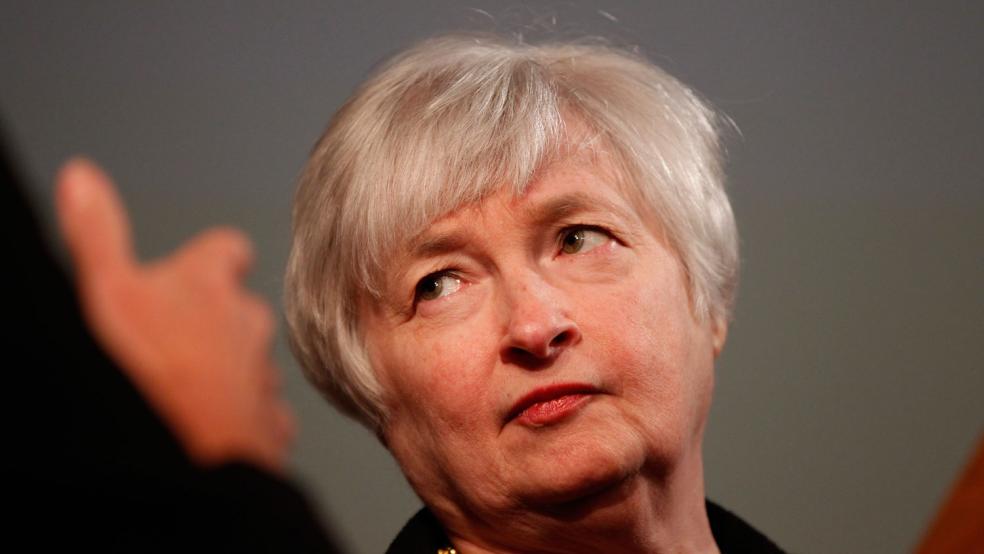If the headlines are to be believed, global stock markets yesterday cheered the news that Larry Summers had withdrawn his name from consideration to be the next chairman of the Federal Reserve.
Summers, the former Treasury Secretary and president of Harvard who seemed to be President Obama’s choice to succeed Ben Bernanke, pulled out in light of the magnitude of opposition from within the ranks of the Democratic Party, leaving Janet Yellen – currently the Fed’s vice-chairman – as the likely and obvious nominee. Or perhaps Donald Kohn, a former Fed vice chairman. Or Roger Ferguson, another former Fed vice chairman.
Does the bursting of the Summers trial balloon really matter to investors? Not much, despite the fact that some traders – it wasn’t just the media – cited the Fed drama as one of the reasons for Monday’s stock market rally.
In truth, the whole rumpus was much ado about very little. Yes, the market had been anticipating that Summers, viewed as somewhat less of a dove on monetary policy, might move to tighten short-term interest rates more rapidly than would Yellen, and might be more aggressive when it comes to “tapering off” the Fed’s $85 billion in monthly purchases of fixed-income securities to support the long end of the bond market.
But the reality is that near-term monetary policy under Yellen and Summers likely wouldn’t have been all that different. Whether Yellen, Summers, Kohn, Ferguson or some outside dark horse candidate succeeds Bernanke at the helm of the Fed, that individual is going to find that their freedom of action is rather limited. The central bank’s balance sheet has swollen to more than $3.6 trillion in assets – fat enough that it’s possible to argue that the Fed is running the bond market these days.
There is widespread expectation that this week’s policy meeting at the Fed will be followed by an announcement that the central bank will trim its bond purchases back a bit, maybe to $75 billion a month, with further pullbacks to come in future months depending on how both markets and the economy respond to this first cautious step.
If Yellen does – as is now widely expected – succeed Bernanke, the major difference is that it may take a few more months for the Fed’s Open Market Committee to begin raising its short-term lending rates. As of last week, a majority of traders were betting on this happening a year from now, in October 2014; now, the odds are being placed on December 2014 or January 2015. The truth, however, is that while this may matter to traders, it is – or should be – of less importance to investors with a mid- to long-term time horizon.
It has been clear for much of this year that higher interest rates were on their way – the policy shift on the part of the Fed being one of the most well-telegraphed in the history of the central bank. The change in the likely nominee’s identity will slightly alter the timing. That’s all.
That said, there might be reasons to be upbeat about Yellen’s nomination. To the extent that she is indeed more dovish than Summers, that may mean she is more focused on ensuring that the unwinding of quantitative easing doesn’t produce any kind of economic shock, especially in an environment characterized by anemic growth and unemployment rates that are still high (especially when you factor in the ranks of discouraged workers or those employed only part-time).
There’s also a lot to be said for the concept of continuity. Anyone who has watched financial markets for any length of time knows that it is often the fear of change or the anxiety about what might happen that leads to big selloffs. If Yellen is Bernanke’s heir apparent, well, she is already involved in the day-to-day decisions at the central bank, peering over his shoulder and communicating with other Fed policymakers constantly. Even a savvy and smart outsider like Summers would bring with him an element of risk, in that his arrival would represent change.
While the market is focused on the (rather small) differences among the possible nominees as Fed chairman, what isn’t being discussed is what Summers’ decision says about policymaking in Washington more generally.
RELATED: SUMMERS + SYRIA = OBAMA LAME DUCK
Clearly, President Obama felt that Summers was the best choice for the job – that he was the most qualified candidate to take the helm of the central bank at a critical transition point. Summers didn’t walk away from the job because he wanted to hang out in academia, or spend more time with his family or because his health is deteriorating. He did so because he could see that the math just didn’t work (he is a top economist, after all). He likely couldn’t see a way to get confirmed by the U.S. Senate without a battle that would leave him, or the president, badly bruised. Summers likely could, on the other hand, all too clearly envisage a scenario where his nomination proved a dangerous distraction for the Obama administration and the Fed.
This is a poor omen for what lies ahead as we careen toward yet more ferocious debates over government spending and the debt ceiling. If contrasting styles and minor policy differences can make it impossible for Obama to nominate the candidate he believes he can work with most readily on one of the most important issues of all – the economy – then what’s likely to happen when these far more contentious issues come up for discussion? With a government shutdown and even default being possible consequences of this continuing discord, we may end up with much less to celebrate than it seems today.







